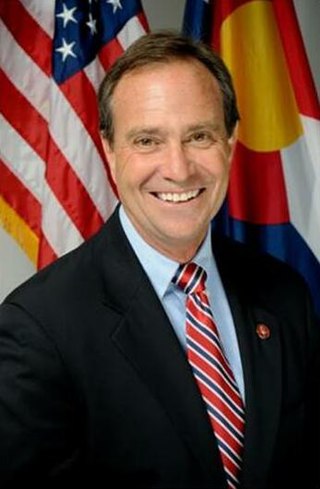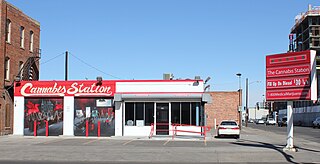Related Research Articles

420, 4:20 or 4/20 is cannabis culture slang for marijuana and hashish consumption, especially smoking around the time 4:20 pm (16:20). It also refers to cannabis-oriented celebrations that take place annually on April 20. At locations in the United States where cannabis is legal, cannabis dispensaries will often offer discounts on their products on April 20.

The legality of cannabis for medical and recreational use varies by country, in terms of its possession, distribution, and cultivation, and how it can be consumed and what medical conditions it can be used for. These policies in most countries are regulated by three United Nations treaties: the 1961 Single Convention on Narcotic Drugs, the 1971 Convention on Psychotropic Substances, and the 1988 Convention Against Illicit Traffic in Narcotic Drugs and Psychotropic Substances. Since its descheduling in 2020, cannabis is classified as a Schedule I drug under the Single Convention treaty, meaning that signatories can allow medical use but that it is considered to be an addictive drug with a serious risk of abuse.

Edwin George Perlmutter is an American lawyer and politician who served as the U.S. representative for Colorado's 7th congressional district from 2007 to 2023. A member of the Democratic Party, his district was located in the northern and western suburbs of the Denver metropolitan area. He previously served as the Colorado state senator from the 20th district from 1995 to 2003. On January 10, 2022, he announced he would not seek re-election in 2022.
Laura Jean Kriho was an American cannabis legalization advocate and was also known for her part in a jury nullification trial in the mid-1990s. Kriho was also involved in the Cannabis Therapy Institute and in the push for the adoption of Amendment 20 in the Colorado Constitution. She advocated against Colorado Amendment 64, however, which she viewed as not true legalization. She petitioned the state with her own cannabis legalization language but never went for ballot title/signature collection.

In the United States, the non-medical use of cannabis is legalized in 21 states and decriminalized in 10 states, as of January 2023. Decriminalization refers to a policy of reduced penalties for cannabis offenses, typically involving a civil penalty for possessing small amounts, instead of criminal prosecution or the threat of arrest. In jurisdictions without penalty the policy is referred to as legalization, although the term decriminalization is sometimes used for this purpose as well.

In the United States, increased restrictions and labeling of cannabis as a poison began in many states from 1906 onward, and outright prohibitions began in the 1920s. By the mid-1930s cannabis was regulated as a drug in every state, including 35 states that adopted the Uniform State Narcotic Drug Act. The first national regulation was the Marihuana Tax Act of 1937.

The use, sale, and possession of cannabis over 0.3% THC in the United States, despite laws in many states permitting it under various circumstances, is illegal under federal law. As a Schedule I drug under the federal Controlled Substances Act (CSA) of 1970, cannabis over 0.3% THC is considered to have "no accepted medical use" and have a high potential for abuse and physical or psychological dependence. Cannabis use is illegal for any reason, with the exception of FDA-approved research programs. However, individual states have enacted legislation permitting exemptions for various uses, including medical, industrial, and recreational use.

In the United States, the use of cannabis for medical purposes is legal in 38 states, four out of five permanently inhabited U.S. territories, and the District of Columbia, as of March 2023. Ten other states have more restrictive laws limiting THC content, for the purpose of allowing access to products that are rich in cannabidiol (CBD), a non-psychoactive component of cannabis. There is significant variation in medical cannabis laws from state to state, including how it is produced and distributed, how it can be consumed, and what medical conditions it can be used for.

Cannabis in Colorado has been legal for medical use since 2000 and for recreational use since late 2012. On November 7, 2000, 54% of Colorado voters approved Amendment 20, which amended the State Constitution to allow the use of marijuana in the state for approved patients with written medical consent. Under this law, patients may possess up to 2 ounces (57 g) of medical marijuana and may cultivate no more than six marijuana plants. Patients who were caught with more than this in their possession could argue "affirmative defense of medical necessity" but were not protected under state law with the rights of those who stayed within the guidelines set forth by the state. The Colorado Amendment 64, which was passed by voters on November 6, 2012, led to recreational legalization in December 2012 and state-licensed retail sales in January 2014. The policy has led to cannabis tourism. There are two sets of policies in Colorado relating to cannabis use: those for medicinal cannabis and for recreational drug use along with a third set of rules governing hemp.

The National Cannabis Industry Association (NCIA) is an American non-profit organization based in the District of Columbia, with an additional office in Denver, Colorado. NCIA is the largest cannabis trade association in the U.S. and the only organization representing state-sanctioned cannabis-related businesses at the federal level. Its mission is "to promote the growth of a responsible and legitimate cannabis industry and work for a favorable social, economic and legal environment for that industry in the United States." The organization was founded in late 2010 and has been described as the "first national trade group for the cannabis industry" in the United States.

In the United States, the use and possession of cannabis is illegal under federal law for any purpose by way of the Controlled Substances Act of 1970 (CSA). Under the CSA, cannabis is classified as a Schedule I substance, determined to have a high potential for abuse and no accepted medical use. Despite this, most states have legalized either or both the medical and recreational use of cannabis.

The legal history of cannabis in the United States began with state-level prohibition in the early 20th century, with the first major federal limitations occurring in 1937. Starting with Oregon in 1973, individual states began to liberalize cannabis laws through decriminalization. In 1996, California became the first state to legalize medical cannabis, sparking a trend that spread to a majority of states by 2016. In 2012, Washington and Colorado became the first states to legalize cannabis for recreational use.

Charlotte's Web is a brand of high-cannabidiol (CBD), low-tetrahydrocannabinol (THC) products derived from industrial hemp and marketed as dietary supplements and cosmetics under federal law of the United States. It is produced by Charlotte's Web, Inc. in Colorado. Hemp-derived products do not induce the psychoactive "high" typically associated with recreational marijuana strains that are high in THC. Charlotte's Web hemp-derived products contain less than 0.3% THC.

Cannabis dispensaries in the United States or marijuana dispensaries are a local government regulated physical location, typically inside a retail storefront or office building, in which a person can purchase cannabis and cannabis related items for medical or recreational use. First modeled in Amsterdam in the late 1970s where they were innocently called coffee shops, it would take the Americans more than a generation to successfully duplicate the idea of a retail cannabis storefront. Unlike in the Dutch coffee shops, today dispensary customers are prevented from consuming cannabis on the site of a regulated dispensary in all known markets.

Cannabis in New Hampshire is illegal for recreational use and decriminalized for possession of up to three-quarters of an ounce (21 g) as of July 18, 2017. Medical use is legal through legislation passed in 2013.

Cannabis in Washington relates to a number of legislative, legal, and cultural events surrounding the use of cannabis. On December 6, 2012, Washington became the first U.S. state to legalize recreational use of marijuana and the first to allow recreational marijuana sales. The state had previously legalized medical marijuana in 1998. Under state law, cannabis is legal for medical purposes and for any purpose by adults over 21.

The Congressional Cannabis Caucus is a registered caucus in the United States Congress, formed in 2017 during the 115th session. The bipartisan caucus was founded by Republicans Dana Rohrabacher and Don Young and Democrats Earl Blumenauer and Jared Polis. The Congressional Cannabis Caucus seeks to harmonize federal laws that conflict with various state laws that permit medical and recreational cannabis.

The Donald Trump administration took positions against marijuana and against the easing of laws regarding marijuana. Although Trump indicated during his 2016 presidential campaign that he favored leaving the issue of legalization of marijuana to the states, his administration subsequently upheld the federal prohibition of cannabis, and Trump's 2021 fiscal budget proposal included removing protections for state medical marijuana laws. In 2018, the administration rescinded the 2013 Cole Memorandum, an Obama-era Justice Department policy that generally directed federal prosecutors not to pursue marijuana prosecutions in states where marijuana is legal as a matter of state law.
Rachel K. Gillette is an American attorney who specializes in law relating to marijuana and the cannabis industry. Gillette is based in Lafayette, Colorado. As a lawyer, she is licensed to practice law in Colorado and Connecticut.
High Profits is an eight-part CNN documentary television series about Breckenridge Cannabis Club and the U.S. state of Colorado's legal cannabis industry. The series began airing on April 19, 2015.
References
- ↑ Alford, Henry (October 30, 2015). "Welcome to Weedstock". The New York Times . Archived from the original on September 18, 2016. Retrieved April 24, 2017.
- 1 2 Pollick, Michael (July 30, 2014). "Colorado's marijuana moves boost economy". Sarasota Herald-Tribune . Archived from the original on April 25, 2017. Retrieved April 24, 2017.